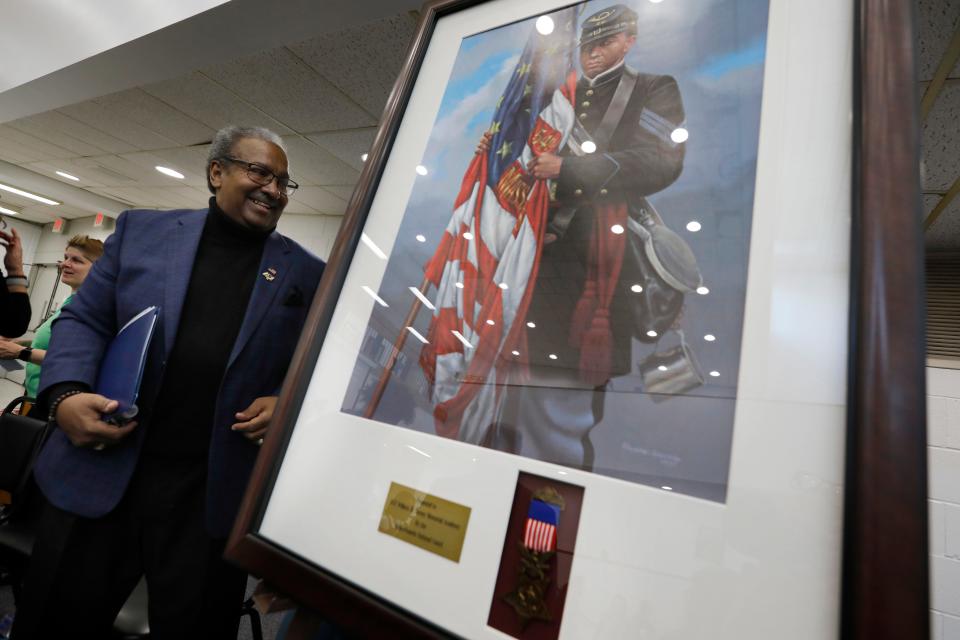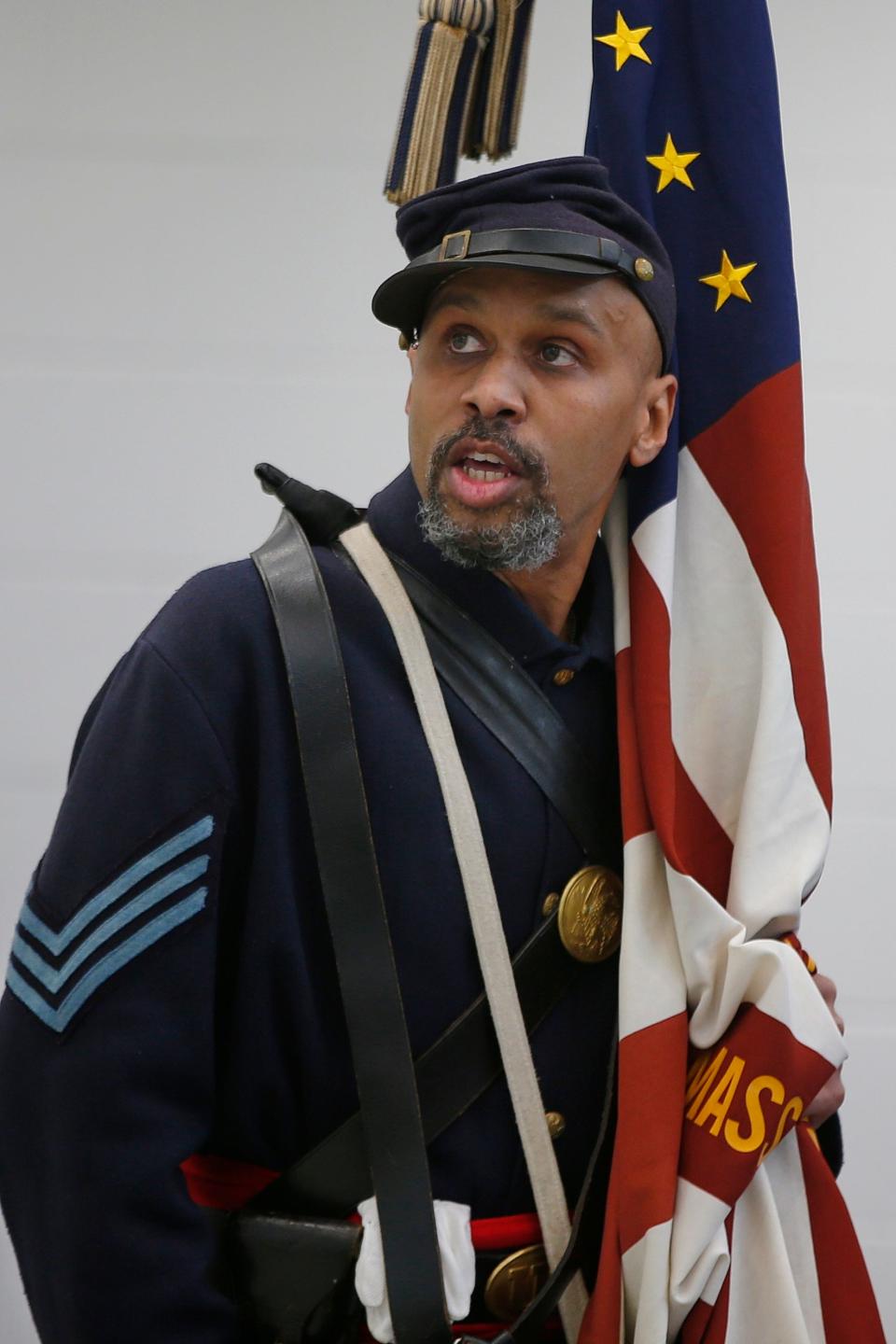'I only did my duty': New Bedford students, officials, Guard members reflect on Sgt. Carney
- Oops!Something went wrong.Please try again later.
NEW BEDFORD — "Sometimes, it's altogether too much of a Boston story," said New Bedford Mayor Jon Mitchell at Carney Academy on Wednesday, as he spoke about the elementary school's famed namesake, Sgt. William H. Carney, and Hollywood portrayals of his legacy.
"The 54th (Massachusetts Regiment) was very much mustered here at the recruiting station on Williams Street, several blocks from this spot.... New Bedford is a huge part of that story."
For those unfamiliar with that story, Carney was born into slavery before escaping and moving to Norfolk, Virginia, and eventually settling in New Bedford in the 1850s. Fast-forward to July 1863, having joined the 54th Massachusetts Regiment, Carney was part of leading the charge in the Battle of Fort Wagner in Charleston, South Carolina, when he took the actions that would immortalize him as an American hero and first Black Medal of Honor recipient.
"Without support, and faced with superior numbers and fire power, the 54th was forced to pull back. Despite two severe wounds, Sergeant Carney carried the colors to the rear," said Carney Academy Principal Daniel McKoy. "When praised for his bravery, he modestly replied: 'I only did my duty; the old flag never touched the ground.'"
The story's historic significance also lies in the fact that the 54th was Massachusetts' first African-American regiment — something Governor John Andrew was reluctant to permit.
"The 54th Massachusetts suffered 207 casualties in the failed assault, but their greater message was not lost," McKoy said. "Some 180,000 African-American soldiers followed in the footsteps of these gallant Guardsmen, and proved that African-American soldiers could indeed fight heroically if given the opportunity."
National Guard makes it a special day
At the ceremony in the school's atrium, sponsored by the Massachusetts National Guard, Guardsmen and women of today presented the school with two framed portraits commemorating Carney and his acts at Fort Wagner, and brought along a military Humvee and other heavy equipment to be explored by students and visitors. A Carney reenactor, 54th Mass. Volunteer Infantry Corporal Emmett Bell-Sykes, led the audience in some call-and-response exercises when reciting a poem about Carney and led them in song.
"During the Civil War, we didn't say 'hooray!,' said Bell-Sykes, in character as Carney, as he warmed up the audience. "We said 'hip, hip, huzzah!'"
'Sgt. Carney was different'
Mass. National Guard General Francis Magurn said despite common Memorial Day "rhetoric" about how soldiers "died for their country" or its ideals, they far more often "die for the people in their unit."
"But we know Sgt. Carney was different," Magurn said.
"He will go down in our nation’s history as someone who fought for a new way of life and a new image of America."

"When asked why he enlisted, he stated, 'I could best serve my country by serving my God and oppressed brothers,'" said Carney's great-great grand nephew, Carl Cruz.
Cruz said Carney received the Medal of Honor 35 years after the end of the Civil War on May 23, 1900.
"After the war, Sgt. Carney worked as the superintendent of streetlights in New Bedford, a few years in California for the Army, and in 1869 he became the first African-American letter carrier in the United States and worked in New Bedford for 32 years," Cruz said, noting Carney's death in 1908 in an elevator accident at the Massachusetts State House, and final resting place at the Oak Grove Cemetery in New Bedford's West End.

"We need to be forever grateful for his fortitude and actions because we all stand on his shoulders," said Superintendent Thomas Anderson, whose uncle, as shared by Mitchell, was a Medal of Honor recipient for action in Vietnam.
"We hear that a lot about people but we need to really take that to heart and really take a moment to reflect and think what has come before us to have allowed us to be in the positions we’re in today; for our younger people, the positions that you will be in tomorrow."
This article originally appeared on Standard-Times: Nat'l Guard celebrates Sgt. Carney at New Bedford's Carney Academy

